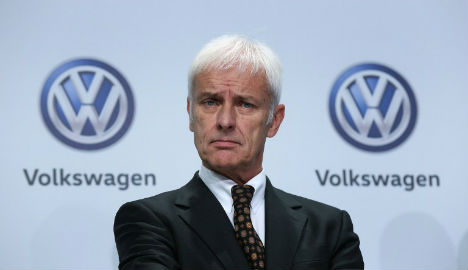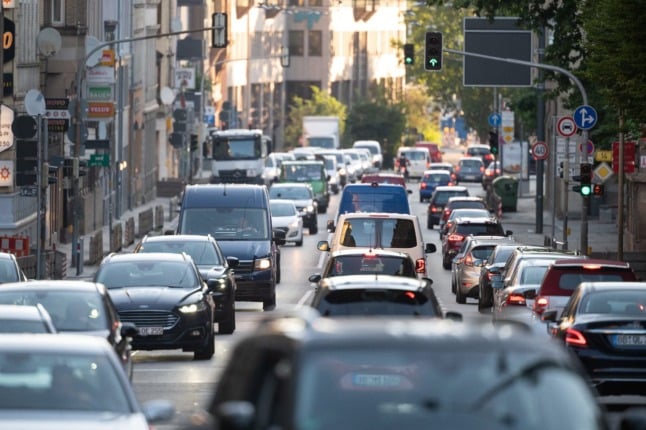VW
VW near $2bn ‘dieselgate’ settlement: NY Times
Volkswagen is close to a deal to pay $2 billion to settle a US criminal investigation into the emissions-cheating scandal involving its diesel cars, the New York Times reported Friday.
Published: 7 January 2017 09:44 CET

Volkswagen CEO Matthias Mueller announced a swathe of cuts in November to help the company weather the 'dieselgate' scandal. Photo: Ronny Hartmann/AFP
A settlement between the US Department of Justice and the German auto giant could come as early as next week, the newspaper said, citing three people who were not identified.
VW told AFP it was continuing to cooperate with US authorities to resolve the case.
Volkswagen admitted last year it had installed software on as many as 11 million diesel vehicles sold worldwide to circumvent tests for emissions while enabling them to release up to 40 times the permitted amounts of nitrogen oxides during actual driving.
Volkswagen already has settled civil charges in the scandal, agreeing to pay $14.7 billion in an agreement that permits owners of nearly a half million 2.0-liter diesel vehicles to either sell them back or get them fixed.
Last month, the company announced it reached an additional $1 billion civil agreement with US authorities for a similar on deal covering 80,000 3.0-liter diesel vehicles. However, that agreement has yet to be approved by a judge.
Url copied to clipboard!


 Please whitelist us to continue reading.
Please whitelist us to continue reading.
Member comments